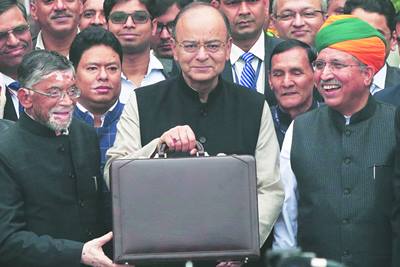The budget essentially continued the pattern of the FM’s past reformist budgets, and was directed towards implementing the government’s desire to bring about greater transparency in governance, reduce corruption and create conditions for faster economic growth. This Budget has taken big steps in those directions. The FM raised the issue of cleaning political funding. It is widely acknowledged that the ‘pull’ from the demand for election funding is one of the main drivers for black money generation. Cash donations have been limited to Rs 2,000, and political parties are required to get their accounts audited and tax returns filed in time. This is a good start.
The Negotiable Instruments Act will also be amended to enable use of cheques to become more common. Black money generation, tax evasion and corruption are all closely entwined. The FM gave convincing data to show how extensive this problem was. Certainly, availability of digital transactions and GST might reduce this problem to some extent, but it might not be enough. The future will tell.
You may also like to watch:
[jwplayer 2E5zwJgE]
The fiscal deficit in 2017-18 is proposed to be kept within 3.2%, which is quite acceptable. The abolition of the plan, non-plan classification was long overdue. The simplifications and easing of definitions for long-term capital gains in real estate should help in curbing use of black money.
The government has given a sop to the lower middle class by reducing the income tax rate for those in the
R2.5 lakh to R5 lakh bracket. This was needed, as this group was harder hit by demonetisation than those in higher income brackets.
